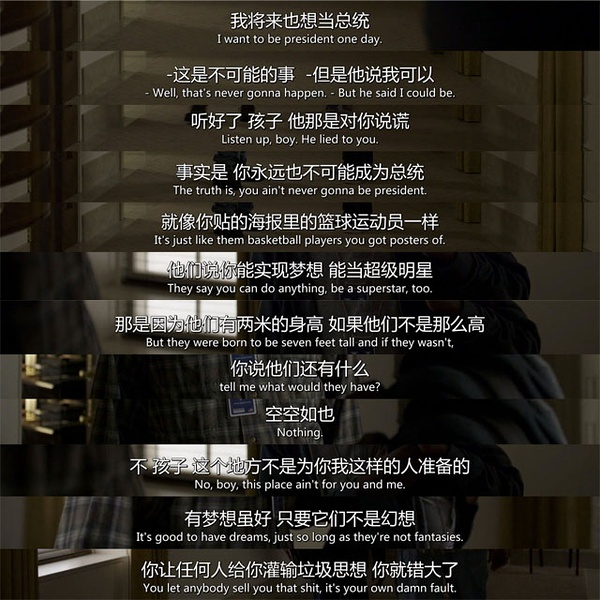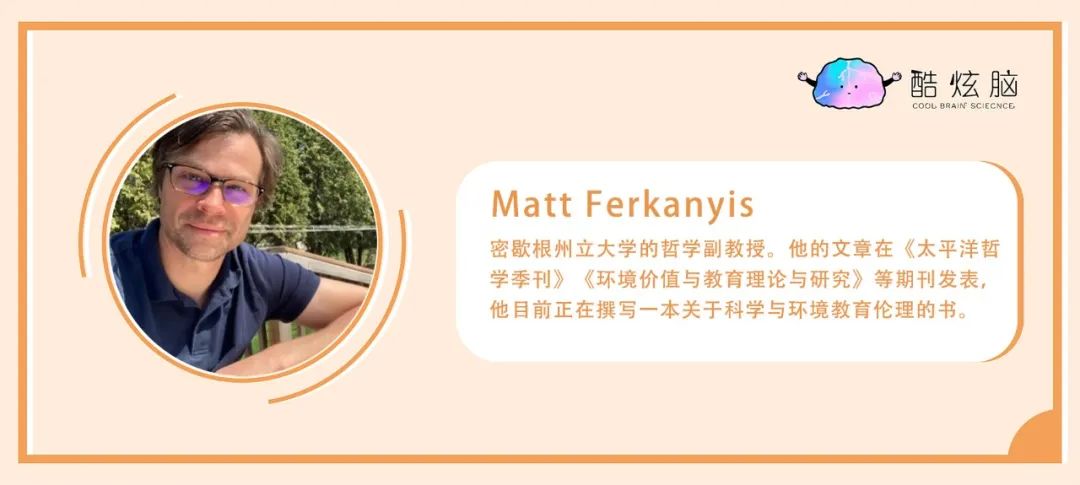Be a "bars" in front of the loved ones?Maybe these benefits
Author:Cool brain Time:2022.08.02


Via: pixabay
The following is the audio of the full text of Miss Sister
Author | Matt Ferkany
Translation | Cotton Bear
Grade -Cool Brain Creative
Reading | Pigeon Tsai
Artist | Old carving worm
Edit | Sales increase
Love contains the responsibility of care. If we do not help improve the moral personality of friends and family members, we will not care about them.
Suppose a parent, an uncle, or an old friend starts to put forward some claims that are obviously wrong in you -such as vaccine, climate crisis, genetically modified food or other topics. You have heard enough, there is an urge to challenge them. What should you do? What action do you take?
In recent years, the media has released suggestions on this topic, and many of them have encouraged friendly and gentle questions without encouraging direct challenges. Based on this kind of suggestion, we may draw the following options that are usually recommended and not recommended:
recommend:
Adjust your speech: cater to their existing beliefs and values ("Consider this problem from the perspective of economic efficiency ...")
Friendly: Listen friendly and ask some (seemingly) open question ("What do you think of genetically modified foods?")
Not recommended:
Putting the facts: Challenge your readers with the opposite facts and information ("No, vaccine manufacturers have not put pressure on the editor to let them withdraw articles about autism and vaccine;
Consistency check: point out that they seem to have some contradictions ("You will still go to a doctor, right?")
To be sure, listening, friendship, and the existing beliefs of the audience are important expression tools. There is sufficient evidence that we need to think carefully when debating. But should we abandon the facts or maintain consistency with them? I believe that all these methods can play a role in effective arguments.

Via: "Listening of the Ear"
A uncle I respected once bluntly said that the level of education required by employers today is too high. He claims that there are far less workers who need university degrees than those who have obtained university degrees.
As a university professor (also a philosopher), I think higher education is valuable, even if it is basically useless. Saying bad things is a good way to get angry. So you can imagine my response, probably like this: "Is it not worth receiving higher education? Can we not make our employees more culture? What about those working in the medical industry? The service is provided by understanding more knowledge rather than less people, right? "My reaction is to check that he and I are consistent: our beliefs, values and practice should be consistent with each other. We should be able to explain any obvious inconsistencies Essence
It is not difficult for my uncle to respond to my uncle: Manageing the practice of health care and the practice of repairing radiation equipment involves important knowledge and skills. But in the latter case, it can be obtained faster and easier to achieve. Different types of work require different levels of knowledge and skills. As a response to my consistency check, my uncle put on the facts.
These more direct disputes sometimes look confrontation. A colleague's brother is a person who denies climate change, and he has complained that "all these renewable energy subsidies" are unfair. The implication of the government is that the government intervenes the market just to benefit special interest groups. My colleague's husband could not resist the fact that he couldn't resist it. He pointed out that from a historical point of view, the subsidy obtained by the fossil fuel industry is much higher than that of the renewable energy industry.
I don't remember the exact result of talking to my uncle, and I don't know the exact result of talking with my colleague's brother. But I remember my uncle and I put forward some related views. I hope he thinks so too.
So, what are our doubts about the debate?
Views and evidence in debate theory and cognitive sciences support the popularity of debate. Based on these views, it is difficult and rare to really think that things are clearly figured out, and reasoning cannot actually serve this purpose.
Instead, in this view, reasoning mainly allows us to prove our existing beliefs and try to persuade others. Therefore, we can easily be affected by "my prejudice", that is, we like evidence that we like our beliefs that are preconceived, and ignore the opposite facts. Many of us are also driven to find reasons that satisfy the status quo of society. Life is difficult enough: Why do you think it is unfair? For many people, the reasonable status quo includes serious inequality, and the practice of burning fuel that scientists tell us are degenerating the earth.
A valuable lesson from this study is that because we often cannot objectively treat the facts objectively, persuading the audience cannot simply provide the opposite information to our audience. We must consider the experience and values of those who have different faith. It is important to imagine what it is for them, and it is expected that they may be difficult to update their faith. (We must also pay attention to our own opinions and values, and remember that we may not care about the relevant counter -evidence.)
Therefore, it is easy for us to conclude that if we want to interrogate someone's beliefs, it is meaningless to challenge them with facts or obvious contradictions. This will not suddenly change their thoughts, so why should I do this more? VIA: "House of Cards"

We can still work hard. First of all, even if the facts and consistency checks will not immediately change a person's thoughts -in fact, even if they are slightly stubborn -it may still affect their beliefs. Change may be slow and difficult. Before changing the occurrence, we may need to argue many times (with a spirit of exchange, respect, or even full of love). Even so, we may only have a certain degree of doubt about the existing views, such as the debate between me and my uncle. But this is always better than not.
At present, there is a verification evidence that at least when everyone starts to deny the meaning of science, it will completely refuse to contact the source of information about the problem of information, which will have a worse impact on attitudes than react with facts.
If your aunt still questions the negligence between the medical institutions on the vaccine and autism, then you better share the facts with her instead of ignoring it. The best result may be that she can see her view of this matter and the tension between the doctor for medical advice. The seeds that sow are sowing to stimulate more careful thinking and improve their understanding of other possibilities. These behaviors themselves are valuable, and may even bring greater changes. The transformation of Megan Phelps-Roper is an incredible example that stimulates self-doubts through slow and patient participation, and what changes can happen. Megan Phelps-Roper used to be a social media coordinator of West Polo Baptist (actually a hatred organization), and eventually left the organization because of contact with online critics.
VIA: "Auxiliary Officer: People who change the world"

Ask an open question or the strategy of helping someone's belief and values does not always help convince them. In fact, when someone has a very ignorant or prejudice belief, listening without judgment may even encourage them. As a philosopher José Medina described, our own ignorance is often invisible until it encounters some resistance. If there is no mirror, when the food is stuck in the teeth, others need to tell themselves. Similarly, intimate people can be used as a mirror on the different opinions of the dislocked claims (even disagree or anger). Through it, a person may start to see himself more clearly.
If your point of view is really inconsistent with others, adjust your point of view according to their beliefs and values, which will usually not allow you to achieve the goal you really want, at least without distorting the facts. For example, if you can convince your relatives and in the long run, doing so is beneficial to the economy, then you may persuade him to support some measures to alleviate climate change. But if he really cares about the work of the coal industry, this argument will not let you go too far; in the process of transitioning to clean energy, these jobs must eventually disappear. This is a simple fact that you have a different point of view. It will eventually be invalid to cover up this point.
It is also important that we have the responsibility to respect others -the bond of love itself is the source of responsibility, and the philosopher (Barrett Emerick has discussed this. Love contains caring responsibilities. If we do not try to participate in their faith to help improve improvement For friends and family's moral personality, we cannot care about them in a crucial aspect -we watch the other party continue to slide the abyss.
Some ways to quarrel with the loved ones -such as insulting them or lying -obviously neither respect nor love each other. However, even the seemingly gentle way to talk about the topic of controversy can easily bring misleading or manipulation. If you use distorted facts to cover up the real differences between you and others, then catering to the beliefs of others is a manipulation behavior. Although expressing friendship in the debate is always a good strategy, if the belief or behavior of the person you love really threatens you to respect them or get along with them, you should find some way to communicate. On the surface, he was very friendly to a "angry uncle", but he complained and complained in private, which eventually did not respect or love him.
Finally, discuss what kind of world we want to create is part of social progress, and we have the responsibility to do our best to contribute to this world. We have unique conditions to do this with our family and friends because they have a special connection with us. Because of this connection, we may be able to make a difficult dialogue with them, and may be carried out many times in many years.
Via: "Listening of the Ear"

This is not always easy. Although we often help our closest people to improve their beliefs, but due to the intimacy between us, we may be particularly cautious about contacting them. To do so requires courage, patience, and sometimes forgiveness. If you do not agree with the position of social power, they may not be used to being challenged (or you are challenged). When you are easily ignored and even hurt to some extent, it is best to let others argue for you. You must make a cautious decision based on these factors.
But the key is that a polite and direct debate with the people we care about may be an opportunity, or even a responsible citizenship obligation and love.When we may conflict with someone on the other side, we should do this.Via: "500 days of Summer"
Reference (click slide to view)

1.ng. News 2011, 89, 51, 30–31. Publication date: December 19, 2011.https: //doi.org/10.1021/cen- v089n051.p030
2. Schmid, P., Betsch, C. Effective Strategies for Rebutting Science Discussions. Nat Hum Behav 3, 931–939 (2019)
Cool brain long -term collection of brain science and psychological articles, welcome to submit


Please submit a mailbox: [email protected]
Click here, let friends know that you love brain science
- END -
Visit the Enterprise Topping Employment | Zhao Heping Visit Changsha KFC Co., Ltd.

On the afternoon of June 21, Zhao Heping, vice president of Hunan Institute of Fin...
"I am here in Shanghai Jiaotong University!" Henan's inspirational "takeaway brother" lived up to dream

I finally waitedI am here in Shanghai Jiaotong University! Recently, Zhengzhou, He...